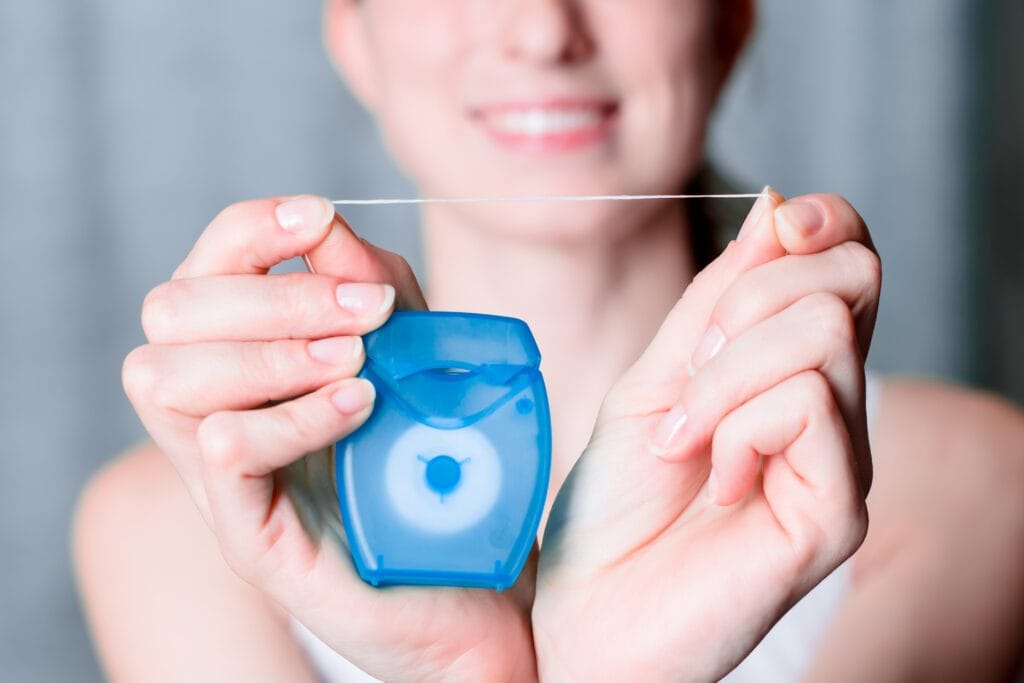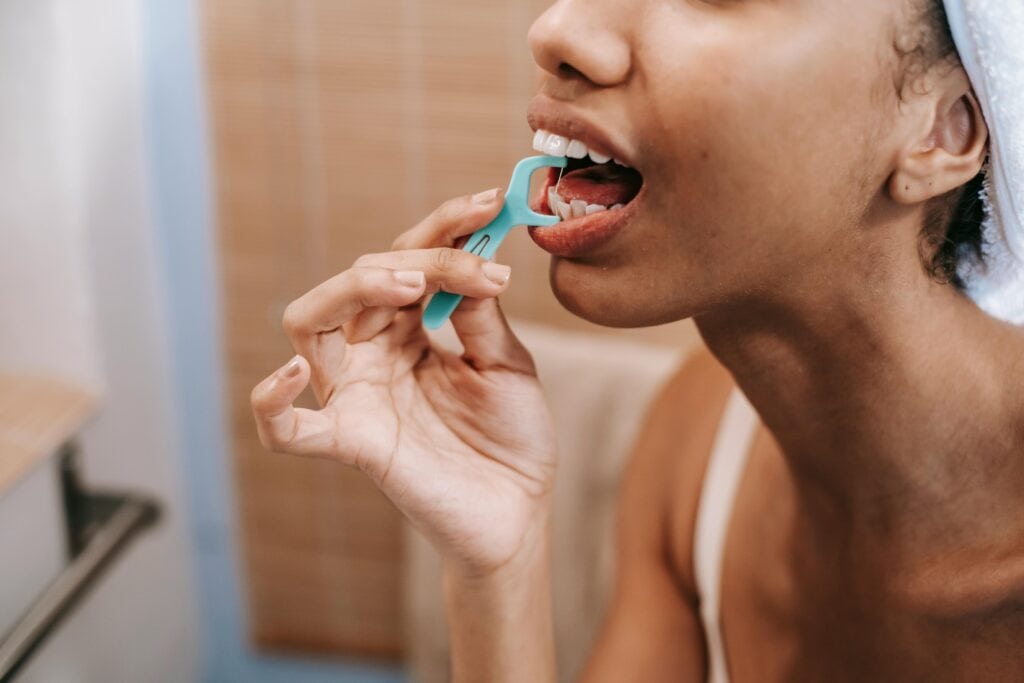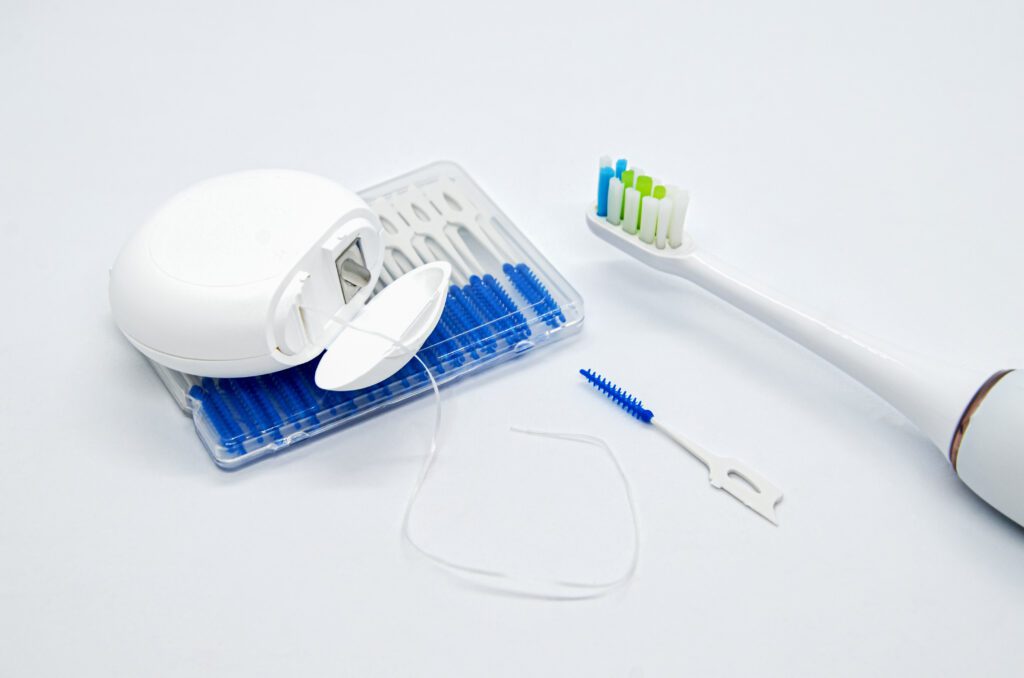Benefits of Flossing
Flossing might seem like a chore, but the benefits of flossing are too significant to ignore. This straightforward habit is essential for removing plaque and food particles that a toothbrush can’t reach, helping to prevent gum disease and tooth decay. It also contributes to fresher breath and a brighter smile. Embracing this practice daily can boost your oral health significantly and promote overall well-being.

What Are the Benefits of Flossing?
Flossing does more than clean between your teeth. It reduces the risk of dental issues by removing debris that brushing alone can’t reach.
Preventing Gum Disease
Flossing regularly is one of the best ways to prevent gum disease. When you floss, you remove plaque and food particles from under the gumline, which your toothbrush can’t reach. This helps keep your gums healthy by stopping the buildup that can lead to inflammation and gum disease. Healthy gums are critical because gum disease can lead to more serious health issues if left unchecked. So, floss daily to keep your gums looking and feeling great.
Avoiding Tooth Decay
Another benefits of flossing is preventing tooth decay. It removes the plaque and food stuck between your teeth where your toothbrush doesn’t quite reach. By cleaning these hard-to-reach spaces, you reduce the chance of cavities forming there. Regular flossing can save you from painful and costly dental treatments down the road. Start flossing young, and you’ll keep your natural teeth healthier for longer.
Maintaining Fresh Breath
Fresh breath is a pleasant benefit of regular flossing. By removing the tiny food particles trapped between your teeth, you prevent them from decomposing in your mouth, which is a common cause of bad breath. Flossing also helps to keep your mouth clean and reduces the overall bacterial load, which can contribute to a fresher breath. This makes social interactions more comfortable, knowing your breath is fresh. Make flossing a part of your daily routine, and you’ll notice a significant improvement in your breath freshness.
How to Floss Correctly
Learning the right way to floss can make a big difference in your oral health.
Choosing the Right Floss
Selecting the right floss is crucial for both comfort and effectiveness. Waxed floss slides easily between teeth and is ideal for people with tight spaces between teeth. If you have wider gaps, dental tape or super floss, which is thicker, might work better. For those with braces or bridges, an orthodontic floss or a floss threader can provide thorough cleaning around dental work. It’s important to choose a floss that you are comfortable using regularly.
Consult with your South Perth dentist to find out the best type of floss for your specific dental needs.
Proper Technique for Effective Cleaning
To floss effectively, follow these steps:
Start with Enough Floss: Cut about 45 centimetres of floss and wind most of it around each middle finger, leaving about 10 centimetres to work with.
Hold It Correctly: Grip the floss tightly between your thumbs and index fingers.
Use a Gentle Motion: Slide the floss gently up and down between your teeth, avoiding a sawing motion.
Reach the Gumline: Curve the floss around the base of each tooth and gently slide it beneath the gumline to remove trapped food particles and plaque.
Use Fresh Floss for Each Tooth: Unroll a new section of floss for each tooth to avoid reinserting bacteria you just cleaned away.
Frequency and Timing
Flossing at least once a day is recommended to help remove plaque from the areas between your teeth where a toothbrush can’t reach. The best time to floss is at night before brushing your teeth, as this ensures that food particles and plaque are not left in your mouth overnight, which can lead to decay. However, if night-time flossing doesn’t fit into your schedule, finding a consistent time that works for you is key. Regularity is more important than the time of day when it comes to flossing.

Benefits of Flossing Beyond Your Mouth
Flossing does more than keep your smile bright; it plays a significant role in maintaining your overall health.
Impact on Overall Health
Regular flossing may contribute to better overall health by helping to prevent gum disease, which has been associated with higher risks of heart disease. While not a substitute for medical treatment, maintaining good oral hygiene, including flossing, might be beneficial for people with diabetes by helping to reduce gum inflammation that could potentially influence blood sugar control. Additionally, flossing helps reduce the bacterial load in the mouth, which may decrease the risk of bacteria being inhaled into the lungs, thus potentially lowering the risk of respiratory diseases. These potential health benefits highlight the importance of oral hygiene as part of a broader health maintenance strategy.
Cost Savings in the Long Run
Investing time in flossing can save you money on future dental procedures. By preventing conditions like gum disease and tooth decay, flossing reduces the need for fillings, root canals, and other costly treatments. Regular flossing minimizes the likelihood of developing severe oral health issues that can turn into expensive and extensive dental work. Additionally, by maintaining good oral health, you’re less likely to face medical complications related to poor oral hygiene, which can be expensive to treat. Ultimately, the small cost of dental floss pales in comparison to the potential savings on health care expenses over your lifetime.
Making Flossing a Habit
Turning flossing into a daily habit is key for long-term oral health, and it’s easier than you might think. For younger family members, establishing good flossing habits early is crucial. Consulting a paediatric dentist can provide tailored advice and techniques to make flossing engaging and effective for children.
Tips for Consistency
Set a specific time for flossing each day, such as before your nightly tooth brushing, to build a consistent routine. Keeping your floss visible next to your toothbrush or on the bathroom counter can serve as a visual reminder. Reward yourself for maintaining your flossing routine, perhaps with a small treat at the end of the week, to keep motivation high. Consider tracking your flossing habits with a calendar or app to see your progress and stay encouraged.
Incorporating Flossing into Daily Routine
Incorporate flossing into your existing bathroom routine to make it as natural as brushing your teeth. If mornings are too rushed, try flossing during the evening when you might have more time to dedicate to dental care. You can also keep some floss handy in places where you might have time to use it, like your desk drawer at work or in your car, so you can floss on the go. Making flossing convenient and accessible helps ensure that you don’t skip this crucial step in your dental hygiene.

Let’s Keep Your Smile Bright!
Embrace a healthier, brighter smile today by making flossing a part of your daily routine. Visit our Perth dental clinic to discover the best products and techniques for effective oral hygiene and get personalized advice tailored to your dental needs. Together, we can ensure your smile stays vibrant and healthy for years to come.
We are a NIB preferred provider, Medibank preferred provider, HBF preferred provider, HCF preferred provider, Bupa preferred provider dentist in Perth.
Book your appointment now (08) 9474 5083 and take the first step towards a flawless smile.


